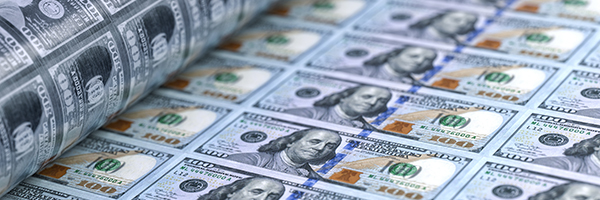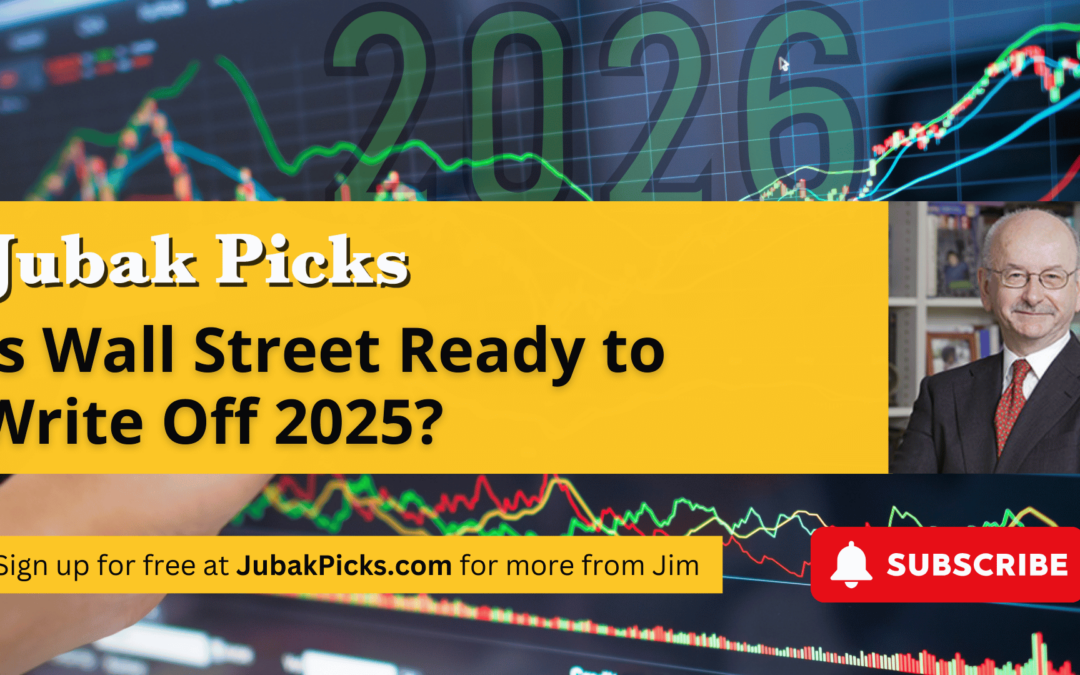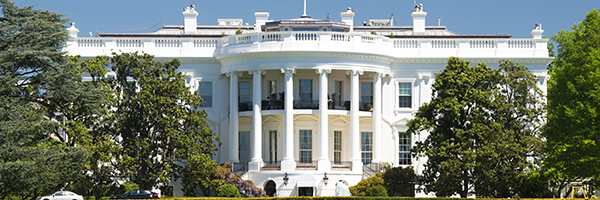
February 12, 2025 | Daily JAM |
Bond traders pushed out bets for the next Federal Reserve interest-rate cut to December on today’s increase in the CPI inflation rate. Swap contracts linked to future Fed decisions had before today anticipated a rate cut by September. Today’s swap pricing implies just one quarter-point cut this year. The yield on benchmark 10-year Treasury closed the day up 9 basis points to 4.62%%. Two-year Treasury yields, more sensitive than longer-maturity debt to Fed rate moves, rose by 7 basis points to 4.35%. “How can anyone justify any rate cuts with such inflationary pressure?,” Roger Landucci, a partner at Alphamatrix Finance in Geneva, told Bloomberg.

February 12, 2025 | Daily JAM, Morning Briefing |
CPI inflation rose by more than expected in January, as prices for groceries, housing and energy all picked up. The headline, all-items Consumer Price Index rose by 3.0% in January from a year earlier, the Labor Department reported Wednesday morning. That’s slightly above the 2.9% annual rate reported in December. The core index, which strips out volatile food and energy prices, was also higher, showing a 3.3% annual rate.

February 11, 2025 | AGN, ALV, AMZN, AUY, BABA, BG, BGC, BHP, BMY, CHK, CMI, CNI, COH, CSCO, CX, Daily JAM, DD, DE, DHR, DXJR, EBAY, ENB, EUM, FB, FCX, FLR, FLS, FTV, GE, GLW, GOOG, HAIN, HDB, INCY, IONS, ITUB, JCI, JO, JOY, KMI, LFL, LNG, LUX, MGM, MIDD, MON, MPC, OGXI, OKS, PEP, PFXF, POT, PXD, QCOM, RSPP, RYN, SDRL, SFTBY, SH, SLB, SPWR, Videos |
Today’s video is Is Wall Street ready to write off 2025? I’m seeing a gradual move on Wall Street from “Trump doesn’t mean what he’s saying about tariffs and mass deportations” to “Maybe he is serious.” On Monday, Trump announced 25% tariffs on steel and aluminum with a starting date of March 4, on top of other tariffs already announced. You can see the shift in commentary from big banks like Bank of America and JP Morgan. These companies are now saying that things that will negatively affect growth are happening much more quickly than things that will support the stock prices. New tariffs and economic uncertainty, which has caused the Fed to refrain from cutting interest rates, are happening now and will be hitting the market. Tax cuts and deregulation, which could goose growth, will take longer to implement and we may not feel those positive effects until 2026 or later. Wall Street is basically saying that 2025 will be a year of negative risks, but 2026 may be more of an upside if tax cuts and deregulation do, indeed, happen.

February 9, 2025 | Daily JAM |
The Consumer Price Index inflation report, due from the Bureau of Labor Statistics on Wednesday morning, is forecast to show that the core consumer price index, which excludes food and energy prices, rose 0.3% in January for the fifth time in the last six months. Compared with a year earlier, core CPI is forecast to have risen 3.1%

February 6, 2025 | AAPL, ACAD, AGN, ALV, AMZN, AUY, BABA, BG, BGC, BHP, BMY, CHK, CMI, CNI, COH, CSCO, CX, Daily JAM, DD, DE, DHR, DXJR, EBAY, ENB, EUM, FB, FCX, FLR, FLS, FTV, GE, GLW, GOOG, HAIN, HDB, INCY, IONS, ITUB, JCI, JO, JOY, KMI, LFL, LNG, LUX, MGM, MIDD, MON, MPC, OGXI, OKS, PEP, PFXF, POT, PXD, QCOM, RSPP, RYN, SDRL, SFTBY, SH, Short Term, SLB, SPWR, Videos, Z-SYMBOLS |
Today’s video is the Fed is between a rock and a hard place. Inflation has been stuck around 2.8% and the Fed would like to get it down to 2%. In January, the Fed paused any movement on interest rates but Wall Street remained hopeful for two cuts in 2025. The March 19 meeting will include a dot plot that will outline whether or not the central bank is thinking about any cuts for 2025. The problem is the Fed doesn’t know where the economy is going. There are too many uncertainties surrounding constantly changing Trump tariffs as well as the expected tax cut bill (which will result in higher yields and a market and economic stimulus). The budget also remains an unanswered question. These uncertainties, with the Fed also under huge political pressure from the Trump administration to make interest rate cuts, catch the Fed between a rock and a hard place and we won’t know how the Fed plans to address its dilemma until March.

January 31, 2025 | Daily JAM, Morning Briefing |
Today’s release of the PCE (Personal Consumption Expenditure) index, the Federal Reserve’s preferred inflation measure, wasn’t good news for investors hoping that the central bank will quickly resume interest rate cuts. The PCE climbed 2.6% in December from a year earlier, faster than its 2.4% annual rate in November and above the central bank’s 2 percent target. Compared to the previous month, prices were up 0.3%.

January 22, 2025 | Daily JAM |
Assuming that conventional economics still has some validity and that economic history has some predictive value, Paul Krugman, who won his 2008 Nobel-prize in economics for his work on international trading patterns, has put some numbers on the likely effects of the higher tariffs proposed by President Donald Trump. In his Substack (Krugman left the New York Times after 25 years at the end of 2024) he laid out this math.
Imports are about 11% of U.S. GDP. A first-pass estimate would be that tariffs on the scale Trump is threatening would be a 25% sales tax on goods that account for 11% of consumer spending. That would raise the cost of living by almost 3%–well over 3% if, as Trump has said he intends in some speeches, he puts much higher tariffs on imports from China. Since median household income is more than $80k, that’s around $2500 a year for the typical household.

January 15, 2025 | Daily JAM, Morning Briefing |
As of noon New York time today, January 15, the Standard & Poor’s 500 was ahead 1.30%. The NASDAQ Composite and the small-cap Russell 2000 were both up 1.80% on the session. Today’s big moves come on relatively minor changes in inflation trends in this morning’s report on CPI inflation in December. And I think they have more to do with how afraid Wall Street is that the Federal Reserve isn’t going to deliver at least one or two interest rate cuts in 2025 than with any big news in today’s report. The consumer price index (CPI) rose at an annual rate of 2.9% in December, up from a 2.7% annual rate the previous month. That increase was in line with expectations. On a month-to-month basis, the index rose 0.4%. The “core” index, which strips out volatile food and energy prices and is much more important to the Fed than the headline inflation number, rose at a 3.2% annual rate in December. That was down slightly from its annual rate of 3.3% in November, and less than economists had expected. It’s this dip in the annual rate of core inflation that has investors feeling so optimistic today.

January 7, 2025 | AAPL, ACAD, ADSK, AGN, ALB, ALV, AMZN, ARCO, ARGT, AUY, BABA, BG, BGC, BHP, BMY, CHK, CMI, CNI, COH, CSCO, CTRP, CX, Daily JAM, DD, DE, DHR, DWDP, DXJR, EBAY, EEM, EFNL, ENB, EUM, EWZS, FANG, FANUY, FB, FCX, FEZ, FLR, FLS, FTV, GDXJ, GE, GGAL, GLD, GLW, GOOG, HAIN, HDB, HP, INCY, ING, IONS, ITUB, IVV, JCI, JO, JOY, KBWB, KMI, LFL, LNG, LUX, MGM, Mid Term, MIDD, MON, Morning Briefing, MPC, MXF, NJDCY, NKTR, OGXI, OKS, PEP, PFXF, POT, PXD, PYPL, QCOM, RSPP, RYN, SDRL, SFTBY, SH, SLB, SPWR, SQM, STO, SYNA, TCEHY, TPR, TRGP, TS, V, VALE, VEA, Videos, VMC, VZ, WBK, WES, XOM, XYL, YPF, Z-SYMBOLS |
The Institute for Supply Management’s index of services advanced 2 points to 54.1 last month. That show of strength in the economy–readings above 50 indicate expansion–was enough to push stocks lower as the markets began to price in a delay in the next interest rate cut from the Federal Reserve until July The measure of prices paid for materials and services rose more than 6 points to 64.4, suggesting that the drop in the inflation rate in the service sector–about 70% of the U.S. economy–might be over.

December 15, 2024 | AAPL, Daily JAM, MCD, Special Reports |
What you need as an investor and what your portfolio needs is a road map to the likely events of the beginning of this new administration. And a take on what those events are likely to mean for the financial markets–and the prices of stocks and bonds. And recommendations on what moves to make to respond to the events of the first 100 days of a Trump Administration. Which is what this Special Report is all about. Here /i’ll give you an investor’s calendar to the first 100 days of Trump; a run-down of the likely effects on the financial markets of the events in the first 100 days; and recommendations for moves that you should make with your portfolio.

December 14, 2024 | Daily JAM, Short Term |
When the Federal Reserve announces its latest interest rate move and it’s Dot Plot projections on future interest rates, inflation, and GDP growth, it will be the Dot Plot projections that matter to the financial markets.

December 11, 2024 | Daily JAM, Morning Briefing |
Inflation remains stubborn. The Consumer Price Index (CPI) rose at a 2.7% annual rate in November, according to Labor Department data released Wednesday. That was hotter than a 2.6% rise in October. But that matched economists forecasts. It was also above September’s 2.4% annual rate. On a monthly basis, inflation increased 0.3% from October to November, the biggest gain since April. Prices for housing, energy, and particularly food all rose.
CPI core inflation, prices excluding volatile food and energy categories, rose another 0.3% for the fourth straight month. The are rate was up 3.3% for the year. For the past six months, core inflation has been stuck at an elevated level above the Fed’s target of 2%.













